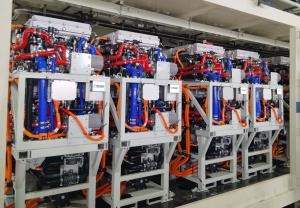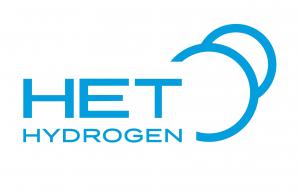Horizon Signs MOU on Zero Emission Powerplants Targeting Electrical Grid Stability
Horizon Fuel Cell will tackle on-demand power generation and AI Datacenter applications with 20-50MW zero emission fuel cell powerplants
SINGAPORE, September 16, 2024 /EINPresswire.com/ -- Ensuring adequate and dependable electricity supply across seasons and through increasingly severe weather events is a challenge for any electrical grid. Of some concern, the North American Electric Reliability Corp (NERC) has highlighted “high risks of resource adequacy shortfalls” through 2027, in their Long-Term Reliability Assessments for the United States.
Horizon Fuel Cell Group is working with third parties to address Resource Adequacy requirements, as enshrined in legislation in multiple US states, but with an attractive sustainability twist; namely, zero emission power generation on-demand, using hydrogen. Detailed designs for the first fuel cell powerplant are being developed with a partner in the US under an MOU, with additional opportunities in the pipeline.
Electrical grids around the world are scrambling to maintain high levels of service and reliability in the face of increased renewable energy in the mix of generation resources, while also addressing a need to reduce the carbon footprint of grid power on which we are all so dependent.
Horizon is best known for high power-density proton exchange membrane (PEM) fuel cells, especially in applications such as heavy vehicles. Horizon’s unique, patent pending hybrid fuel cell technology leads the industry in single stack power output, power density and durability. The powerful and compact fuel cells are well suited to demanding applications like power plants, heavy vehicles, ships, and even airplanes.
Having previously deployed stationary powerplants up to 2MW for industrial customers, Horizon now brings clean and green “hydrogen peaker plants” and zero emission AI Datacenters within reach, with plans to deploy 20-50MW systems based on well proven heavy duty 200kW fuel cell modules. Industry-leading electrical efficiency exceeding 52% can be achieved with these fuel cell systems. The next-generation 400kW fuel cell stacks will further improve operating efficiency, ensuring increasingly attractive cost structures for backup and baseload power in the near future.
NERC recommends “an increased focus on distributed energy resources” due to the outsized benefit of on-demand power generation proximate to areas of increasing demand, which is much easier to accomplish when using quiet, zero emission generating assets such as fuel cell powerplants. Traditional peaker plants must be located in areas well separated from many of the demand centers for electrical power, which increases the cost and complexity of delivering the power where it is needed.
Horizon Fuel Cell Powerplants are a natural complement to the renewable hydrogen produced with MW-scale electrolysers recently unveiled by Horizon and its electrolyser subsidiary, HET Hydrogen Pte Ltd. The combination of the two technologies adds significant value to the increasing base of renewable power generation, and provides a step-change in decarbonization options for electrical grid asset owners and operators.
About Horizon Fuel Cell Technologies: www.horizonfuelcell.com
Horizon Fuel Cell Technologies founded in 2003, with a consistent focus on fundamental innovation in both materials and systems-level technology for fuel cell and electrolyser solutions. Horizon has become a world-leading developer of key technologies across the hydrogen value chain, with 1.2GW annual production capacity at two locations for Membrane Electrode Assemblies (MEA) underpinning production of downstream fuel cell and electrolyser products deployed in various applications.
Stefani Sun
Horizon Fuel Cell
+1 585-200-9227
email us here
Legal Disclaimer:
EIN Presswire provides this news content "as is" without warranty of any kind. We do not accept any responsibility or liability for the accuracy, content, images, videos, licenses, completeness, legality, or reliability of the information contained in this article. If you have any complaints or copyright issues related to this article, kindly contact the author above.



